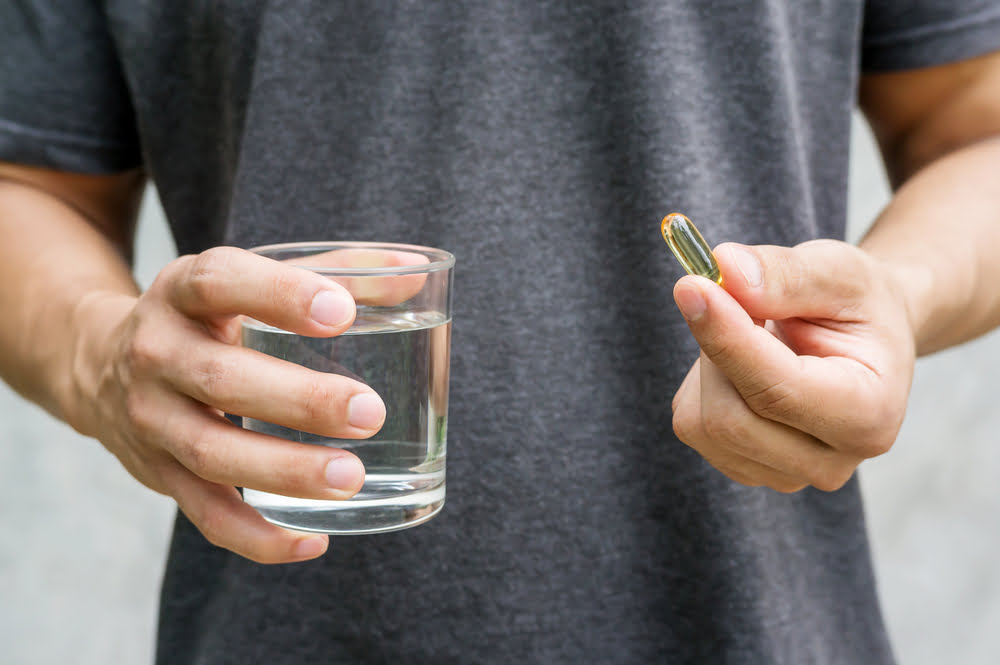The Short Answer
You can take fish oil whenever it fits your routine—as long as you take it with a meal. EPA and DHA are fats, and your body absorbs them far better when other dietary fats are present. Swallowing capsules on an empty stomach often leads to poor absorption and, for some people, those dreaded “fishy burps.”
Why Timing Can Still Matter
A growing body of research shows that the body’s internal clock influences how we process medicines and nutrients. At night, shifts in hormones, digestion, and blood chemistry can change how well certain compounds work. That’s one reason some blood-pressure, reflux, and cholesterol drugs are now advised in the evening in specific cases. The same logic can inform your supplement routine—provided you still anchor fish oil to a meal.
Morning, Noon, or Night?
Breakfast has long been the go-to. But modern breakfasts are often light or low-fat, and many people skip them altogether. Because omega-3s need fat for optimal uptake, a low-fat breakfast can blunt the rise in your omega-3 blood level. If your mornings are minimal, shifting fish oil to lunch or dinner—meals that typically include more fat—can produce a more reliable bump in your Omega-3 Index.
If Reflux Is an Issue
Fish oil floats on stomach contents, which is why larger doses close to bedtime can trigger indigestion in sensitive folks. Splitting your daily amount across two meals, or taking it earlier with a substantial lunch, often solves the problem. Others find the opposite—that evening works best—especially when their capsules are combined with nutrients aimed at sleep support. Let your stomach be your guide, but keep the “with food” rule non-negotiable.
What Nighttime Research Suggests
Symptoms of several conditions—acid production, nocturnal heartburn, and early-morning cardiovascular events—tend to peak overnight and in the early morning. That pattern helps explain why some reflux medicines taken later in the day work better than morning dosing, and why certain blood-pressure regimens show stronger protection when scheduled at night. While fish oil isn’t a drug, it acts on similar pathways, so timing it with your largest meal—often dinner—may align benefits with when your body needs them most.
Inflammation, Joints, and Morning Stiffness
Omega-3s and NSAIDs modulate overlapping biochemical pathways involved in pain and inflammation. Some pain medications perform best when taken several hours before symptoms typically flare. By analogy, taking fish oil with your evening meal may set you up for easier mornings, particularly if joint stiffness is your first daily hurdle.
Sleep Quality and Omega-3s
DHA is a structural fat in the brain and appears to play a role in sleep regulation. In small trials, omega-3 supplementation has been linked with longer sleep duration and fewer night wakings in children, and observational work in adolescents associates higher DHA status with earlier sleep timing and slightly longer weekend sleep. For adults, the data are preliminary, but ensuring adequate DHA intake is a low-risk way to support sleep architecture alongside good sleep hygiene.
Practical Takeaways
If you eat a hearty, fat-containing breakfast, morning is fine. If breakfast is light—or nonexistent—take your capsules with lunch or dinner instead. If you get reflux, try splitting the dose or avoid heavy late-night dosing. And whatever schedule you choose, be consistent for a few months, then consider checking your Omega-3 Index to confirm you’re actually moving into the desirable 8–12% range.
Bottom Line
There isn’t a single “perfect” hour for fish oil. Pair your dose with your most substantial meal of the day to maximize absorption, adjust timing to minimize reflux, and consider evening dosing if your goals include calmer mornings or sleep support. Consistency plus “with food” beats everything else.




